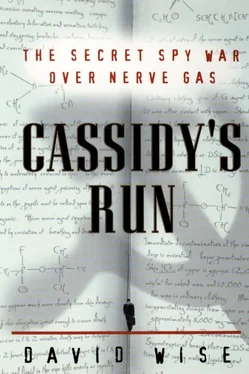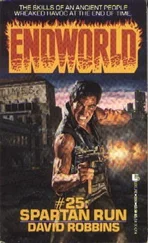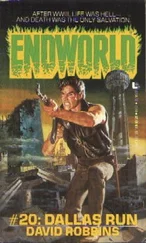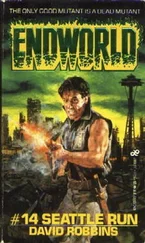By the early 1980s, however, Hormats’s opinion of nerve gas had changed sharply. “Because by then it was a war against civilians, the Soviet army would not be harmed. They had masks and protective gear. CW would not contribute to our winning the war. A chemical war in the fifties was moral; a chemical war in the eighties would have had no effect on winning the war and would only have harmed civilians.”
Hormats, white haired and in his mid-eighties when interviewed, had lost none of his intellectual vigor. “War is a failure of democracy and of government,” he said. “We ought to worry more about getting into wars, not how we fight them.”
It is easyand even fashionable to say with the benefit of hindsight that the cold war was a useless conflict or that intelligence operations such as SHOCKER ultimately had no impact on the outcome. But those arguments overlook an essential truth. One does not have to resort to Reaganesque rhetoric about evil empires to understand that there is a critical difference between democratic institutions and totalitarian governments.
Indeed, the history of the twentieth century is the history of the battle between democracy and dictatorship, between governments, however imperfect, where the people rule and governments of the right or left whose rulers crush freedom to maintain their power. The cold war was a part of that larger conflict. It was fought, to a considerable extent, by the intelligence agencies on both sides. The men and women who carried out these operations believed they were doing what was right in that time and place.
Looking back, few regret the effort. Colin T. Thompson participated in the hidden war for several decades, mostly in Asia, as a clandestine officer of the CIA. He is a thoughtful man, far from a gung-ho defender of all of the agency’s schemes and operations. But, reflecting on the cold war years, he asked: “What were we supposed to do? Let the Soviets take over the world?”
That same conviction—that somehow the battle needed to be fought, even if the victories were few and limited—motivated men such as Phil Parker, Jack O’Flaherty, Gene Peterson, Charlie Bevels, Jimmy Morrissey, Mark Kirkland, Tren Basford, and the other FBI agents who participated over the years in Operation SHOCKER.
But the central figure, upon whom the entire operation depended, was Joseph Edward Cassidy, a plain American soldier, who saw his duty and performed it without question even as it took over, and at times could have endangered, his life. None of the frustrations of the operation—the escape of the PALMETTOS, or the risky decision to pass information about nerve gas to the Russians—in any way detracts from his own service.
For twenty-one years, Cassidy successfully pretended to be a traitor to his country, an Aldrich Ames inside the United States Army. He played his extraordinary role to perfection and never once slipped up to betray his true loyalty. In an age of few heroes, Joe Cassidy was a genuine American hero.
“Cassidy,” Phil Parker said, “had a good run.”
During the life of the operation, more than 4,500 pages of classified documents, all cleared by the Joint Chiefs of Staff, were passed to the Soviets in exchange for hundreds of thousands of dollars. One former bureau official with knowledge of the case said the Russians paid their “agent” more than $200,000. The FBI would not divulge the overall cost of the operation.
Gilberto Lopez y Rivasand his wife resumed their academic careers after their precipitous return to Mexico in 1978. Their past remained a secret. But some of Lopez’s former colleagues at the University of Minnesota later heard additional shards of information about the pair.
The story that Lopez was only helping the Cubans circulated after he left the campus, but Professor Rolando Hinojosa-Smith learned something more when he ran into Lopez at a conference in Mexico. “I went to teach creative writing at the University of the Americas in Puebla in the late seventies. He came down to see me because I was chairman of department, and he had left all of a sudden, and he apologized. But he said he can’t come back to us. I said, ‘Well, you broke a contract but that’s not irreparable, it was only a summer course.’ He said it was impossible for him to come back. He said, ‘I’m a member of the Communist Party.’”
In the 1980s, Lopez gained media attention in Mexico as a firebrand anti-American activist. In May 1983, for example, after the murder of navy Lieutenant Commander Albert Schaufelberger, an American military official, in El Salvador, Lopez led a street demonstration of four thousand people that blocked rush-hour traffic in Mexico City for hours.
“The death of the North American is the natural result of U.S. intervention in the country,” Lopez declared. “Latin American nations have the right to assassinate those people who meddle in internal affairs in a direct manner.” The marchers outside the American embassy chanted: “If you don’t want to die, leave Salvador.” [3] “Leader of Protest March Calls U.S. Adviser’s Death ‘Logical,’” United Press International, May 27, 1983. Schaufelberger, thirty-three, of San Diego, was one of six members of a group assigned to El Salvador to coordinate military aid. He was shot in the head four times while waiting in a car for a friend on a college campus in San Salvador.
By the 1990s, Lopez had become prominent in Mexican politics as a leading member of the Party of the Democratic Revolution (PRD), the main opposition party of the left in Mexico.
In late March 1991, Lopez was in Moscow again, this time as a participant in a three-day conference on “Lenin and the 20th Century.” Although the Soviet Union was only nine months away from collapse, Pravda, the Communist Party newspaper, reported the event in familiar phrases, referring to Lenin as “our great compatriot.” [4] The newspaper’s account mentioned Lopez as one of four notable foreign speakers.
While researching this book, the author discovered that Lopez was working at the Instituto Nacional de Antropología e Historia in San Angel, a section of Mexico City. At the time, his wife, Alicia, was teaching in the anthropology department of the Universidad Autónoma Metropolitana in nearby Ixtapalapa.
In a telephone conversation, Lopez was asked whether he would be willing to be interviewed. From his reaction, it was clear that the call came as a big surprise. “Well,” he said carefully, “I have to consider my position here and that of my wife.” [5] More recently, word filtered back to FBI headquarters in Washington that Gilberto and Alicia Lopez had divorced.
It was pointed out that Lopez was safely in Mexico and could talk about whatever he had done if he wished. Besides, the cold war was over. Lopez said he would meet with the author if he came to Mexico, but he was not promising an interview. Soon afterward, Manuel Guerrero called the author from Minnesota. Lopez, he said, had thought about the request and definitely would not agree to an interview.
In 1997, Lopez was elected to the Mexican Chamber of Deputies, the lower house of the Mexican Congress. As a PRD congressman, Lopez became the spokesperson, and for a time the head, of the congressional commission attempting to mediate the conflict in Chiapas, where Zapatista rebels took up arms in 1994, calling for more democracy and Indian rights.
In the summer of 1998, Lopez accused President Ernesto Zedillo of escalating the Chiapas conflict and preparing to crush the rebels militarily. The federal and state governments, he said, “displace the Chiapas indigenous people from their communities, they massacre them; they pursue them; they torture them, and they jail them.” [6] Associated Press, June 11, 1998.
In July, when two U.S. diplomats were detained by suspicious villagers in Chiapas, Lopez called their presence “open meddling” in Mexican affairs. [7] The Houston Chronicle, July 31, 1998, p. A28.
Читать дальше












